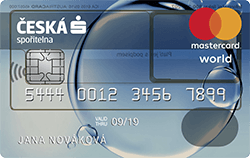I’m sure we’ll all agree that 2020 has been such a challenging year for everyone. So challenging that I completely forgot to write to a whole year, my apologies 😀 But now I’m here to tell you what have changed this year.
With recessions hitting almost every single country out there, Czech Republic isn’t an exception. The CNB (Czech Cental Bank) decided to keep the interest rate low, hence banks slashed their interest rates to the extreme (now most banks offer below 1% of interests). So unless you need to use your money immediately (like to buy a flat or something), this makes it even less attractive to just put your money in a bank. Therefore naturally, I was looking for alternatives of where to put my money.
My first option was the stock market. I’ve been regularly investing into the stock market for a while now, but the stock market took a major hit sometime in February – March. I know it was very scary to see how I put all my bonuses from work into the stock market in February, and the next week it dropped so hard my stomach churned. But luckily, I was shocked only for a while, then I decided to keep on investing every month. To my surprise, now it’s pretty much gone back to where it was before the crisis. In fact, if you kept investing throughout the dip like I did, you should’ve been making some sweet profits by now already. This is only my first recession so with this experience, and I guess by taking into account anyone’s experiences going through recessions, the lesson learned is to just keep on going no matter how bad the stock market goes because eventually, it will go back up again (especially for those who are in it for the long run). (I’m using Degiro as my broker to regularly by ETF with free commission, and Revolut to buy individual stocks. I’ve added referral links so you could get free €20 from Degiro and a free card from Revolut if you decided to join).
That should be a better alternative already. However, if you’re like me, always wondering if there are more alternatives just to diversify your portfolio, Cryptocurrency could be your answer too. Many of you have noticed how Bitcoin has been brought up in the mainstream media recently due to its price soaring (nearly $20,000 this year). And because of that, more and more people are interested to tap into this hoping to get rich quickly. However, if you decide to try buying this, please bear in mind that cryptocurrencies are much more volatile than the stock market, and many people say you should only invest the amount of money you are prepared to lose.
If after reading this you still think that’s a thing for you, I will congratulate you because I believe in the future, cryptocurrencies would be used and utilised by way more people due to its nature (decentralised, easy to use and quick). And you can keep on trading them even on weekends, unlike the stock market. (I’m using Crypto.com and Celcius to buy and hodl my crypto assets. Again I added referral links so you could get free $50 (browser) and $25 (app) from Crypto-com and $20 in Bitcoin from Celcius).
Those are some alternatives you could use to store your money if you want to avoid habing your money being eaten away by inflation. Hope this helps and let me know in the comment what you do to manage your money! -AB






